Clean Food Group says its alternative is ‘sustainable and scalable’
Palm oil is a wonder ingredient. Odourless, tasteless, with a smooth creamy texture. It’s spreadable at room temperature and extends shelf life. As such, it features in around 50% of products consumers use daily, according to WWF estimates.
But unsustainable palm farming is wreaking havoc. As Michelle Desilets, executive director of the Orangutan Land Trust, puts it: “Palm oil is not intrinsically harmful to the planet. Bulldozers, chainsaws and intentional fires to clear land are.”
Now, a UK company claims to have the antidote. This week it secured £2.3m in additional funding to “bring sustainable oils and fats to the market, at commercial scale, within the next three years”.
So, what sort of benefit might Clean Food Group’s palm oil alternative bring to the planet? And can it convince fmcg to shift its sourcing?
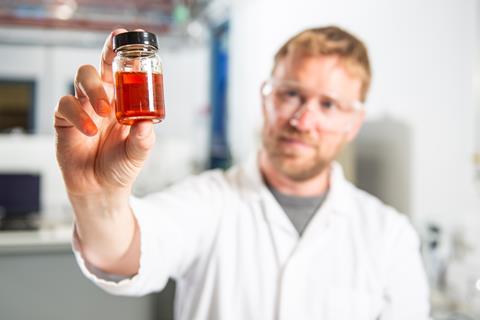
Palm oil production
Clean Food Group’s alternative is produced by a proprietary yeast strain, “in a very similar way that the brewery industry makes alcohol”, explains co-founder and CEO Alex Neves. It means none of the deforestation, habitat loss or worker exploitation long associated with palm oil, he claims.
On the other hand, palm oil production is becoming more sustainable.
In the UK, at least 72% of palm oil imports are RSPO (Roundtable on Sustainable Palm Oil) certified, and in the EU this figure stands at 90%.
“In general, major fmcg companies have commitments to sustainable sourcing,” says Emily Fripp, director of natural resource consultancy Efeca. Supermarkets have, too: Tesco last year claimed all its own-brand products were RSPO certified, Sainsbury’s hit the target a year before, and the likes of Aldi did in 2016.
But that “doesn’t mean palm oil is sustainable”, argues Clean Food Group CFO Tom Ellen. “At some stage in time, an area that is now an oil plantation was once rainforest.”
Further, the sector “suffers from a highly complex and opaque supply chain”, he adds.
Some groups have accused the RSPO scheme of greenwashing. Greenpeace called it “a henhouse insurance scheme run by foxes”.
With consumer concern growing, many brands are touting ‘palm oil-free’ on packaging.
But reducing demand for palm oil – sustainable or otherwise – could also have negative consequences.
“Palm oil is the most efficient vegetable oil crop,” says Nicola Brennan, WWF’s supply chain specialist. “You can get more yield – up to nine times – in the same area of land as other crops.”
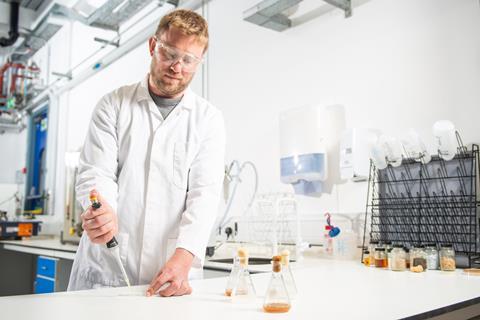
A 2018 study found only 0.26 hectares of land is required to produce one tonne of palm oil, this is compared with a much larger 1.25ha for rapeseed oil.
However, there are further environmental benefits to Clean Food Group’s alternative.
“Localising supply chains” avoids transporting the alternative “around the world from the tropics”.
The yeast also feeds on food waste. For example, surplus bread from a bakery’s process can be converted “and delivered back to them as oil and fat”, Neves explains.
The company argues an independently verified life cycle analysis proves its production results in 90% less emissions than palm oil.
While planet health perks will attract the interest of fmcgs, success will likely be driven by cost and scalability of production.
“At this time, there is no indication lab-made alternatives can compete at scale in terms of cost or availability,” says Desilets.
Clean Food Group, however, says its partnership with German ingredient producer and investor, Döhler Group, puts it “one stepping stone below” full commercialisation.
And with scale, its alternative could be cost-equivalent to current palm oil products, the company claims. Novel foods regulations would need to be contended with alongside scalability, but Clean Food Group expects its oil to hit UK shelves by the end of 2025.
“Over the coming decades, we are facing significant challenges – not only climate change, but also population growth, and an increase in vegetable oil demand,” says Fripp.
Clean Food Group’s oil could play a role in meeting demand and reducing deforestation.







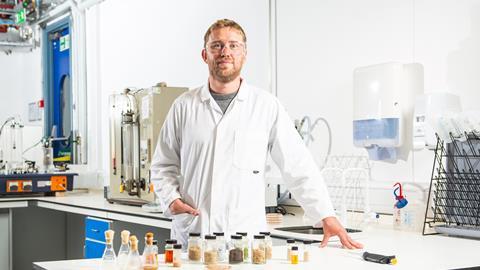
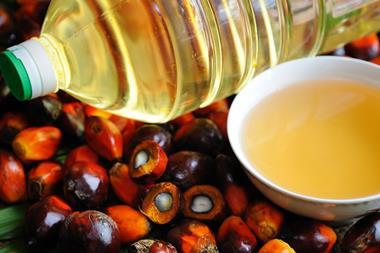



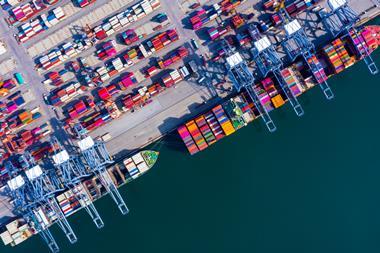







No comments yet